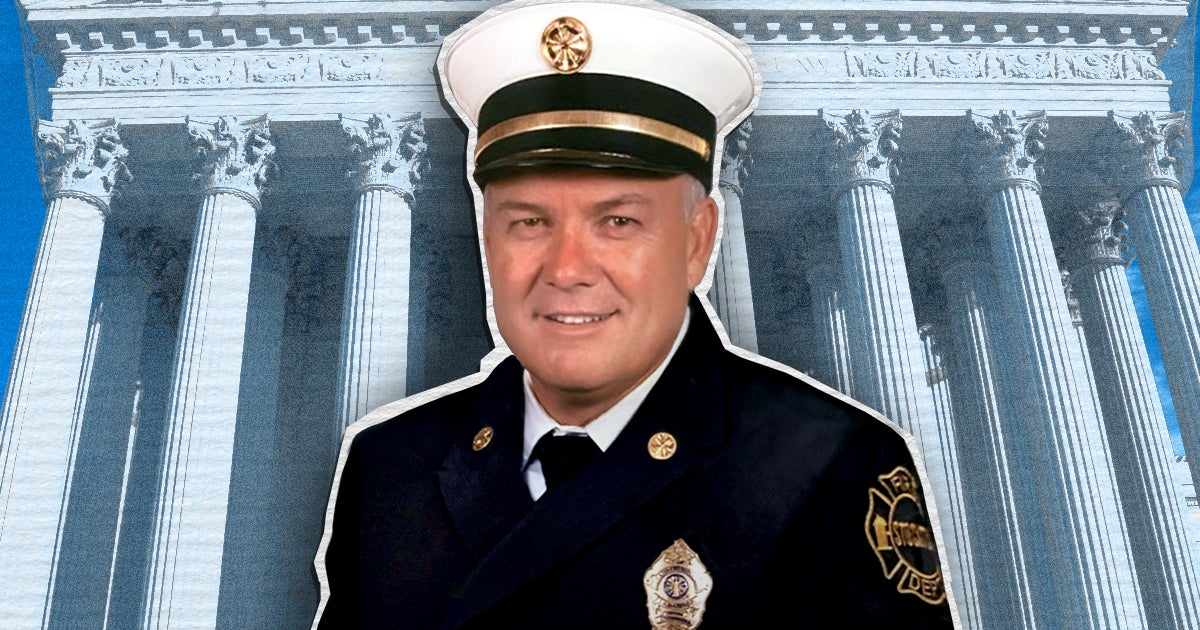
by Jorge Gomez • 3 minutes
The U.S. Supreme Court will begin hearing cases on Monday, October 7. The Court hasn’t yet agreed to hear a religious liberty case for the upcoming 2024-25 term. However, the justices have a conference on September 30th, when they’ll begin choosing additional cases to take.
According to Kelsey Dallas at Deseret News, the Court has not heard a religion case since April 2023, when it heard First Liberty’s Faithful Carrier case involving postal worker Gerald Groff. But that could change.
First Liberty is preparing to file an appeal sometime this fall to the Supreme Court on behalf Fire Chief Ron Hittle. After 24 years of service, Chief Hittle was fired by the city of Stockton, California because he attended a leadership conference that took place at a church. Even though the city encouraged him to attend leadership training and Chief Hittle paid for the training himself, the city opened an investigation after he attended the Willow Creek Church Global Leadership Summit.
The city fired him, listing his attendance at the “religious event” and his decision to allow others to attend as the primary reasons for his termination. City officials referred to Chief Hittle as part of a “Christian clique” and “Christian coalition.” One official told him that he would likely win his lawsuit, but they would drag his name through the mud.
Chief Hittle sued for religious discrimination and has been fighting through the federal courts for more than 10 years. In May, the 9th U.S. Circuit Court of Appeals declined to hear his case en banc.
Despite this setback, Chief Hittle is not giving up. And neither is First Liberty. We’ll be making the case to the nation’s highest court that employers are not given a free pass to treat religious employees as second-class citizens. This case isn’t just about one firefighter. It impacts the rights and protections of millions of Americans in the workplace.
Several other religious liberty cases have already been appealed and are currently seeking Supreme Court review.
One is Young Israel of Tampa v. Hillsborough Area Regional Transit Authority. The Transit Authority declined to sell advertising space to an Orthodox Jewish synagogue, because of its policy against promoting religious content. The key question: is the government allowed to ban religious advertising from public spaces? This case raises issues similar to First Liberty’s case, Wallbuilder Presentations v. Washington Metropolitan Area Transit Authority, which is pending in the D.C. federal district court. We obtained a preliminary injunction to stop the transit agency from prohibiting Wallbuilders’ ads.
Another case pending before the Court is Catholic Charities Bureau v. Wisconsin Labor & Industry Review Commission. It involves a Catholic ministry that provides support to people with disabilities, the elderly, and those in poverty, among others. Wisconsin officials have said Catholic Charities doesn’t legally qualify as a faith-based organization, in part because it serves and employs non-Catholics and doesn’t focus on converting people to Catholicism. The key question: What should count as a religious organization under the law?
And there is Landor v. Louisiana Department of Corrections, which involves a Rastafarian man who was forced by prison officials to cut his hair counter to his religious beliefs. The key question in this case is: can the religious individual sue for damages under the Religious Land Use and Institutionalized Persons Act, or RLUIPA, even though he’s no longer imprisoned?
Over the past several years, we’ve seen monumental progress for religious liberty at the Supreme Court. Our victories in the Faithful Carrier, Coach Kennedy, Treat Children Fairly and Bladensburg Peace Cross cases are creating a seismic change in religious freedom law. Thanks to these wins, Americans have more religious freedom today than they’ve had in more than 50 years.
It’s still early, but there’s hope this could be another landmark term for religious liberty at the Supreme Court.
Read More:
Deseret News: It’s been 17 months since the Supreme Court heard a religion case. When will the streak end?
CRUX: Supreme Court could preserve, or restrict, religious freedom in upcoming term